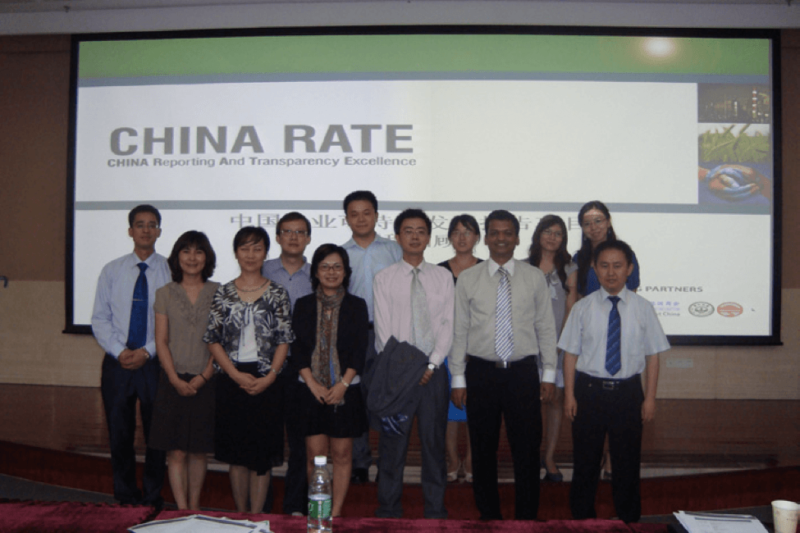Stringent environment compliance norms have put Sri Lankan industries and their suppliers under immense pressure to comply with stipulated environmental standards. Launched by DEG, UL DQS, ASSIST and Sri Lanka NCPC, PROSPER hopes to raise overall awareness on the need and means to implement Resource Efficient and Clean Production (RECP) methodologies, and strategize transfer of knowledge through a series of trainings and capacity building initiatives.
The skill-building and training courses targeted SMEs from manufacturing, textile and apparel, food and agro-processing, chemical and service sectors. Training of Trainers (ToT) workshops on Cleaner Production, as well as thematic sessions on Water, Energy and Chemicals, and e-toolkits were provided to participating SMEs. Companies were chosen to pilot the RECP training curriculum, and directly assisted with the further implementation of RECP methodologies. Overall, PROSPER increased awareness among SMEs and key stakeholders on the strengths and opportunities harmonizing processes and systems with RECP provides in achieving standards compliance and environmental sustainability.

China is among the top three countries in the world with regards to the size of its economy and success of its business. When it comes to the quality of services and products, Chinese organizations are considered world class. However, up to date one aspect of conducting business has not reached wide popularity, namely corporate sustainability reporting. The project China RATE sought to initiate the spread of corporate social and environmental reporting amongst manufacturing and service industries in China. It hoped to raise awareness and optimize the reporting procedures of Chinese companies to make their businesses more sustainable. By training organizations on issues such as transparency, environmental responsibility and international GRI guidelines, it aimed to enable them to create a better long-term approach which would lead to greater success and profits.
ASSIST, in partnership with TUV Rheinland, conducted awareness raising sessions with company CEOs, trained local companies on GRI guidelines and provided technical consultancy to selected companies on GRI implementation. The awareness raising activities targeted top decision makers to ensure company commitment to corporate sustainability reporting. Fifty participants from different companies in China attended a series of training on GRI standards, international and local standards as well as on local carbon strategies. These trainings built the local capacity of these participants to become trainers themselves and spread their knowledge among industry partners. Finally, the project gave five companies intensive consultancy on GRI guidelines and helped them with their sustainability reporting.
The European Commission (EC) was to launch a “Responsible Value Chains in Asia” project in Q1 of 2017 targeting China, Myanmar, Japan, the Philippines, and Vietnam. Following discussions between different EC services, a formulation mission was to be carried out with a view to help in refining priority activities to be conducted under the action, including with regards to geographic and sectoral conditions. The overall objective of the action is to support CSR/RBC practices and approaches in relevant Asian trading partners with a view to enhancing market access opportunities and strengthening an international level playing field for EU responsible businesses in the region.
ASSIST, as part of the formulation mission, produced a concept note, an Action Fiche and a mission report based on the briefing session, desk research and interviews with relevant national and international stakeholders. Information sources included documentation of sessions with FPI, DG Trade and other EU stakeholders, country-specific strategies by the European Commission and its Member States, country and regional priorities like those from the ASEAN and SAARC, and documents coming from OECD, ILO, and UN agencies. Fieldwork in Myanmar and the Philippines were also conducted to interview national stakeholders.
China increased its economic power through a staggering expansion of heavy industry and urbanization in the past decade. A key city that experienced open industrial and commercial growth is Kunshan City, which aims to continue its industrial development and at the same time conserve its environment. AIM is a Private Sector Partnership (PSP) project jointly implemented by Vossloh, TÜV NORD, and ASSIST, and aims to improve the quality and environmental management systems in Vossloh’s supply chain in the Kunhan Industrial Estate in China thus, contributing to a more sustainable industrial system in China.
The AIM project was implemented in three key phases: 1. conduction of four one-day ISO 9001 and ISO 14001 awareness sessions; 2. technical assistance to five companies helping them align their practices with the above ISO standards; and 3. processing of the certification and the development of e-tools to assist this process. Three training of trainers (ToT) sessions were also conducted to qualify 60 local trainers and create a local pool of trainers on these international standards. A Body of Knowledge (BoK) document was also developed, benchmarking ISO 9001 and ISO 14001 standards in Chinese and English languages to build the local capacity.
The project raised awareness on these quality and environmental standards among companies in Kunshan City. E-newsletter and e-learning kits were developed and distributed along with the organisation of drawing and slogan writing competitions to educate companies and increase interest on the importance of Quality and Environmental Management Systems (QEMS).


